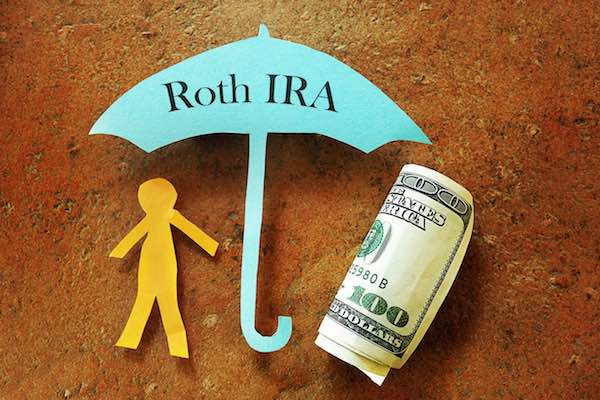January 1, 2018, marks the 20th Anniversary of the Roth IRA, which was established by the Taxpayer Relief Act of 1997 and named for its chief legislative sponsor, Senator William Roth of Delaware.
Investing in a Roth allows you to pay tax on the seed (the smaller, contribution amount) and reap the bounties of the harvest (the contributions plus earnings) tax free!
Hoorays for the Roth IRA
- Earnings come out tax free as long as five years have passed since you opened your Roth IRA and you are 59½ or older.
- Contributions to a Roth IRA can be withdrawn anytime, for any reason, tax-free and penalty free. In contrast, all withdrawals from a traditional IRA are subject to income tax and generally subject to a 10% early withdrawal penalty if taken before age 59½.
- There is no age limit on making contributions to Roth IRA’s, while one can no longer contribute to a traditional IRA upon reaching the year in which one turns age 70½.
- You can contribute the maximum to a Roth employer plan and the maximum to a Roth IRA, as long as you are under the income limits in the chart below.
- You are not required to take a Required Minimum Distribution (RMD) from a Roth IRA.
Contribution limits for 2018 are $5,500 ($6,500 age 50 or over), however there are income restrictions that may not permit you to contribute to a Roth IRA.
Roth IRA Income Limit Chart
| For this filing status | Contributions are reduced if income is above this amount | Contributions are not available if income exceeds this amount |
|---|---|---|
| Single, head of household, or married filing separately IF you didn’t live with your spouse during the year | $120,000 | $135,000 |
| Married filing jointly or qualifying widow or widower | $189,000 | $199,000 |
| Married filing separately IF you lived with your spouse at any point during the year | $0 | $10,000 |
Roth TSP
In May 2012, the Thrift Savings Plan launched the Roth TSP, which allows federal employees who are eligible to contribute to TSP, the opportunity to contribute to the Roth TSP.
There are no income restrictions like there are in a Roth IRA. Contribution limits for 2018 are $18,500 ($24,500 age 50 or over). You can contribute all contributions to the Roth TSP, but your five percent match will go into your Traditional TSP. You can split your contribution to both the Roth TSP and the Traditional TSP, but the limit of $18,500 ($24,500 age 50 or over) is a combined limit.
Fiscal cliff law signed in January 2013 allows the TSP and other plans to give enrollees the option to switch accounts. Participants would pay taxes on the amount converted to a Roth account. At present, the Federal Thrift Savings Board has not made provisions to allow you to convert existing funds from Traditional TSP to Roth TSP.
The following statement was posted to the TSP website:
“We are currently waiting for tax reporting guidance from the [Internal Revenue Service] and will be studying the actions required to offer a conversion option.” According to a news update on TSP’s website, “After that review, we will make decisions on whether to proceed.”
Roth IRA Conversions
If you have traditional IRA’s, you can convert to a Roth IRA, but there has been a game changer that will impact planning for Roth IRA’s going forward. Prior to 2018, you could undo a conversion (recharacterize) up to October 15th of the following year. Now, that will no longer be the case. The new Tax Cuts and Jobs Act has abolished some Roth IRA recharacterization. Thus, a popular planning tactic — execute annual partial Roth conversions, using recharacterizations to fine tune taxable income and stay within a tax bracket — will disappear. In fact, the current stock market level has some people very concerned about doing any Roth IRA conversions, without the chance to recharacterize. Imagine paying tax on a Roth conversion of $200,000, and winding up a year later with a Roth IRA worth $100,000.
As we begin a new year, your 2018 New Year’s Resolutions may include sharpening your retirement planning, if you would like to address these questions individually please call us at 855-531-7252, to schedule a time to discuss.



